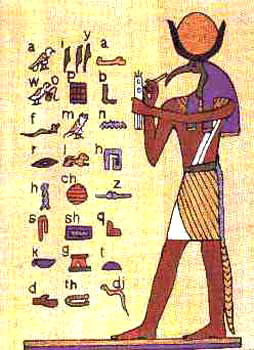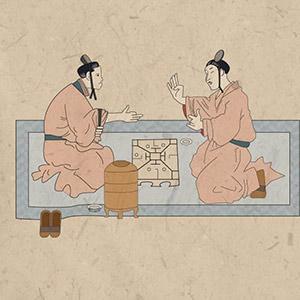Ancient Gambling


Gambling in Ancient Rome In truth, gambling was a part of everyday society, and many would feel the need to bet when playing simple board games. For example, ‘game of twelve’ was a popular game in ancient Rome and is seen as a predecessor to what we now know as backgammon. Elsewhere, Romans also liked to play ‘game of brigands’ and others.
- Then there is the Kojiki, the Register of Ancient Things, which describes how Emperor Temmu enjoyed one of his favorite hobbies, the ban-sugoroku, around 685 AD. Later Empress Jito who succeeded him, banned the game. This is the furthest precedent of gaming regulations in Japan and other countries.
- The Ancient Gambling in Europe Before Lottery Online Appears Though there are many countries can access lottery online, many people said that gambling was originated from Europe. Nowadays, many people can access prediksi togel hongkong site easily from all over the world though in some countries, gambling is considered as the illegal activity.
By Alex J. Coyne © 2017 for Gifts For Card Players
While the first slot machine saw the casino floor for the first time in 1894, gambling is by no means a new phenomenon. In fact, we’d guess that gambling has been around about as far as mankind. We wend digging for some more information about the gambling of the ancients…
Ancient Egypt
Ancient Egyptians were well-acquainted with games for money; in fact, they used this hieroglyph to represent game pieces: It is also argued that Senet, played frequently by the ancient Egyptians and still played today, is one of the world’s most ancient board games known to us. (You can play a more modern version of Senet online over here, or you can find the rules for the ancient board game at Masters of Games!) They were also known to play other games including Horse and Jackal – yes, that would have been exactly like going to the tracks.
The cure for a gambling addiction, at least according to the Egyptians, was a sentence of forced labour.
Ancient Greece
Gambling gets a mention in the ancient Greek pantheon, as it was believed that the Gods – Zeus, Poseidon and Hades – cast lots to choose their parts of the universe.
The Greeks were known gamblers: According to accounts by historian and playwright Sophocles, it was the Greeks who gave us the invention of dice. (We have to point out here that Gambling.net notes the discovery of dice earlier in ancient Egypt!) Furthermore, according to Ancient Manners: Also Known as Aphrodite (2011) by Peter Louys, throwing two sixes was known to the Greeks as “the throw of Aphrodite.”
But, we dare to ask, who came up with the invention of the sexy dice?
Ancient China
Ancient Roman Gambling

While gambling is officially outlawed in modern-day China, we can say that they have a long and colourful history with bets, gambles and wagers – and might have been one of the earliest civilizations to bet on anything. Games popular for the ancient Chinese include Wei-Qi, Yue Har Hai and Mahjong, of course. Even dominoes have been found in ancient China, going back to approximately 700 B.C.
The base for many card games are also believed to originate from China, where many people believe playing cards themselves originated from.
The Ancient Aztecs

Yup, even the ancient Aztec-civilizations enjoyed a game or two – in their case, it was a game known as Patolli. The stakes for the game could be set very high, and you could end up betting your entire store or family in the process. You can challenge yourself to an online version of Partolli here thanks to games developers Oca Studios, minus the potential of human sacrifice if you lose, of course…
Mr. Bet is one of the top online casino gambling sites providing the latest games including new online slots.You’ll enjoy your time on the website – it’s nicely designed and offers lots of information and an affiliate program. Mr. Bet is owned by Faro Entertainment N.V.
What many people fail to recognise is the fact that one of the earliest forms of entertainment in the world is gambling. There is evidence of existence of gambling activities in ancient civilizations and turns out gambling, the thing that scares us so much these days, is something that has been around for centuries. According to the information provided in the popular encyclopaedia Britannica, gambling was regulated and severely curtailed in the laws of Rome and ancient China. Additionally, in ancient Egypt incurable gamblers were sentenced to forced labour. Gambling in its basic form was a point of interest to ancient Greeks too, while the Minoan civilization is believed to be the one that first introduced games similar to poker.
Ancient Gambling
Playing Cards Originates from China
It is believed that China is the cradle of playing cards and inventing cards. The Chinese civilization is responsible for the existence of paper and that led them to coming up with the idea of paper money. Soon enough they learned how to shuffle paper money and that is how the practice of shuffling cards was born. The most commonly related game to China is keno. Keno is played with cards that have numbers from 1 to 80 in squares. Players were allowed to choose a set of numbers and then a draw would take place to identify the winning numbers. The origin of keno goes back to 2,000 years ago and certain findings show that the game was initially called “white pigeon ticket.” By 900 AD it is believed that China come up with card games decorated with human forms. This later became a huge trend in Europe as well. However, Europeans changed the design in order to show off Kings and Queens that are still used in modern decks.
Gambling in Ancient Greece was Both Condemned and Widely Practiced
Gambling was definitely present in ancient Greece; however, there were split opinions whether activities of this kind should be forbidden or not. A research by casinoshortlist.org on the topic showed that many Greek philosophers strongly opposed the idea of gambling and even claimed that this activity would become a plague. Nevertheless, liked it or not, gambling had not one, but two Gods on its side. Hermes and Pan, important figures in Greek mythology, are known for taking part in gambling, whereas some stories mention Hades, Poseidon and Zeus throwing dice in order to split the Universe between them. Two popular games that were played by ancient Greeks are checkers and heads and tails. Checkers was at the time called tilia, while in Roman era it got the name “game of 12 lines.” Head and tails were first played with a shell and later it evolved in people using a coin instead. Furthermore, many Greek artefacts reveal scenes of betting; people bet on animal fights such as dog, chicken and bird fights. Finally, Greeks loved their dice. According to many researches, people in ancient Greece used three clay cubes, while Romans reduced it to two.
Native Americans Had Ancient Casinos in Caves?
Very recently Archaeologist found a cave in Utah that is believed to be an ancient casino used by Native Americans. This might be the first casino established on US territory and findings show that it dates back to the 13th century. Researchers at the time revealed that the cave might contain as many as 10,000 objects that are connected to gambling in one way of another. Among the things that were found there were carved sticks. Ancient Native American gamblers would throw the sticks and guess whether they land face-up or face-down. In the thorough research study, archaeologists claimed that the main users of these gambling sticks were women who used gambling as a way of assigning various tasks. John Ives, an archaeologist at the University of Alberta who worked at the site, said that the cane dice were used for assigning day-to-day activities such as “hide and meat preparation, sewing” and etc. However, even though women were the ones to gamble with the sticks, men also took part in gambling activities. For example, they were placing bets on the outcomes of the gambling “sessions” in which the women participated.
Ancient Emperors Enjoyed Gambling Too
It has to be pointed out that ancient Emperors are known for enjoying gambling quite a lot. For example, Emperor Augustus is believed to having suffered from heavy gambling losses; he is known as a tireless gambler who was at the verge of addiction. Emperor Commodus also had bad gambling habits and he once even went bankrupt. Emperor Nero is another example of prominent figure that enjoyed gambling and sporting activities. However, there is not much information about the games they were playing at the time. Most probably, they were throwing the dice, which was pretty popular those days, as well as bet on various outcomes (sports events, fights and etc.).